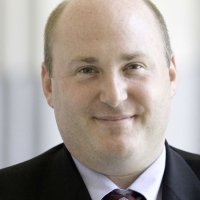Environmental Film Festival Screening: The Fence
The documentary The Fence, directed by Rory Kennedy, "shows a strong case against a single-minded approach to securing the border," said Mexico Institute Program Associate Robert Donnelly at a Wilson Center screening on March 23. Part of the DC Environmental Film Festival, the screening was co-sponsored by the Environmental Change and Security Program and the Mexico Institute.
Overview
The documentary The Fence, directed by Rory Kennedy, "shows a strong case against a single-minded approach to securing the border," said Mexico Institute Program Associate Robert Donnelly at a Wilson Center screening on March 23. Part of the DC Environmental Film Festival, the screening was co-sponsored by the Environmental Change and Security Program and the Mexico Institute.
The film documents the $3 billion dollar construction of a 700-mile-long fence, which runs intermittently along the 2,000-mile-long U.S.-Mexico border. The barrier, a result of the Secure Fence Act of 2006, was intended to keep out terrorists, drug traffickers, and unauthorized border-crossers. Yet, according to the film, it is a solution in search of a problem. No terrorist has ever entered the country by illegally crossing the southern border; the 9-11 hijackers all had visas and arrived in the country by air, the film notes.
Physical barriers also have not reduced the rates of contraband drug smuggling into the United States, in spite of the claims of fence hawks, the film argues. And the numbers of undocumented immigrants in the United States actually rose over 1994-2009, the period covered in the film. At the same time, the construction and maintenance of physical barriers along the southern border have had adverse humanitarian, environmental, and fiscal consequences.
The film's wry narration pokes fun at the "absurdity" of a fence that stops and starts at different places along the border. But this absurdist tone does not detract from one of the film's more serious messages: that border fencing has coincided with an increase in migrant deaths from 1994 through 2009.
In a discussion following the screening, Geoff Dabelko, director of the Environment Change and Security Program, said that it is unlikely the fence will be torn down anytime soon given the money spent on its construction. Donnelly pointed out some adverse environmental effects of border fencing, such as the disruption of migration patterns for certain animal species. The film notes that the normal environmental review process for projects of its kind was waived by the Department of Homeland Security, which cited the importance of the border fence to national security.
The discussants acknowledged that the border fence is ill equipped to single-handedly stop the traffic in contraband or to significantly stem unauthorized migration. Instead, immigrant-sending and -receiving countries should work together to develop policy options that better address the root economic causes that prompt unauthorized migration.
Drafted by Dana Deaton and edited by Schuyler Null and Meaghan Parker
Geoff Dabelko, Environmental Change & Security Program, 202-691-4178
Speaker

Geoffrey D. Dabelko, PhD
Professor and Associate Dean, George V. Voinovich School of Leadership and Public Affairs, Ohio University; Associate Senior Fellow, Environment of Peace Initiative, Stockholm International Peace Research Institute
Hosted By

Environmental Change and Security Program
The Environmental Change and Security Program (ECSP) explores the connections between environmental change, health, and population dynamics and their links to conflict, human insecurity, and foreign policy. Read more

Mexico Institute
The Mexico Institute seeks to improve understanding, communication, and cooperation between Mexico and the United States by promoting original research, encouraging public discussion, and proposing policy options for enhancing the bilateral relationship. A binational Advisory Board, chaired by Luis Téllez and Earl Anthony Wayne, oversees the work of the Mexico Institute. Read more
Thank you for your interest in this event. Please send any feedback or questions to our Events staff.








